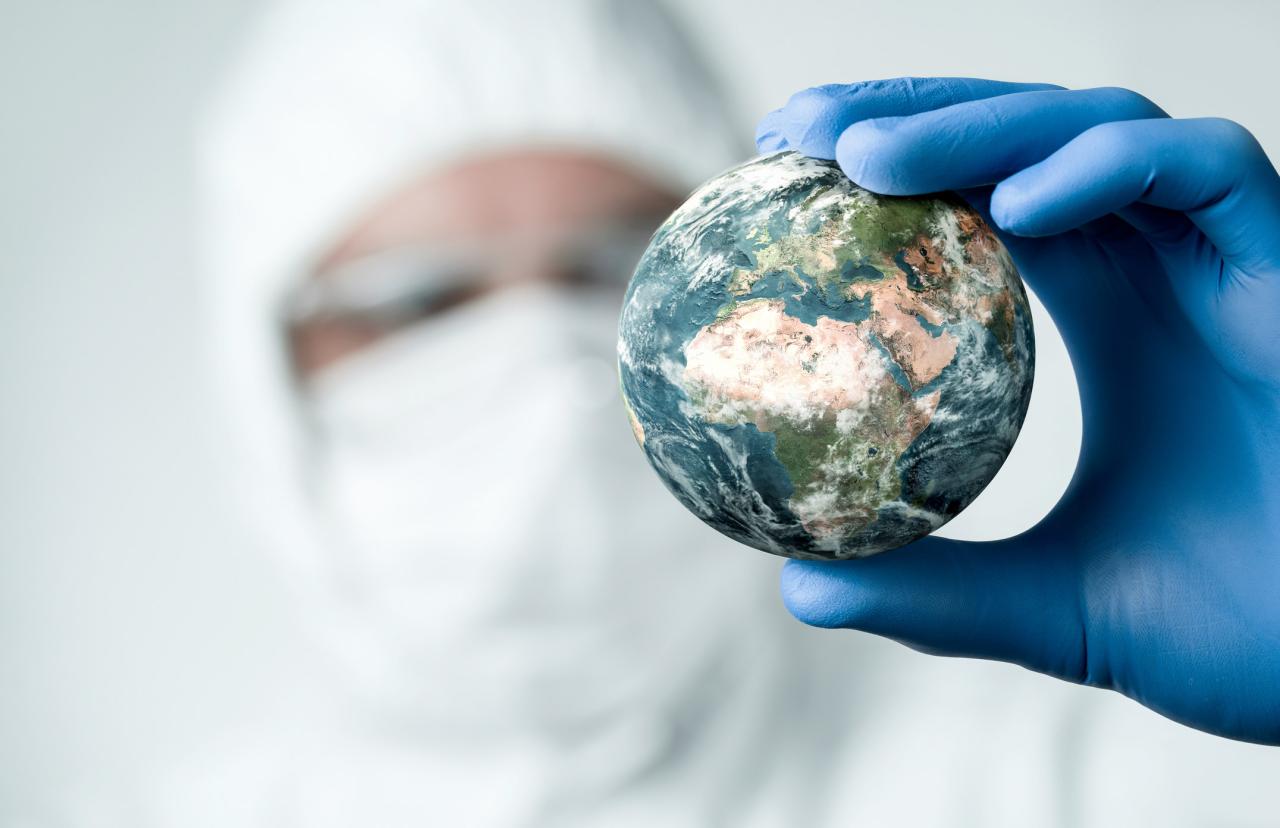
In the trenches of the battle against COVID-19, critical defensive gear and medical equipment are in short supply. Doctors and nurses fighting the non-stop onslaught of the highly contagious coronavirus desperately need more ventilators, test kits, surgical masks, shields and gowns. In Spain, healthcare workers are making their own shields or reusing disposable gowns but 12,000 of them had caught the disease by the end of March. In worst-hit Italy, more than 60 doctors have died. The American epicentre of New York asked for 30,000 ventilators from federal authorities but only got 400.
At the root of the problem lie manufacturing shortfalls, breakdowns in the supply chain and short-sighted politics, says INSEAD Affiliate Professor of Technology and Operations Management Prashant Yadav in the first of the INSEAD webinar series, Navigating the Turbulence of COVID-19.
The solution, he says, is to rethink sourcing strategies in a holistic rather than piecemeal manner. That’s on the ground. On a broader level, he adds, the final number of casualties will hinge on cooperation, whether it’s among companies involved in the stepped-up manufacturing of critical equipment like ventilators, or countries not restricting and even banning exports of medical supplies for a start.
“We will have to overcome our political differences, our agency conflicts and our hyper-nationalism issues to solve this,” says Yadav, who advises US hospital networks as well as large global agencies’ supply chain response to the pandemic.
Sadly, for some of the gear such as the N95 mask and surgical masks, the problem is not only that there is not enough of them to go round as demand has spiked around the world. More importantly, Yadav notes, the links between the mainstream suppliers, the hospitals and the people who need the supplies have broken down as a result of initial shutdowns in China, export controls by some countries such as India, and other extraordinary measures that have gripped much of the world since the virus became a pandemic.
“In some instances, ironically, we hear that there are suppliers and manufacturers who are saying, ‘I have surplus supplies to sell’,” says Yadav. “On the other hand, there are hospital sourcing specialists who are struggling to get even very small quantities of supplies.”
Holistic rather than piecemeal
However, shortages are very much a problem when it comes to critical medical equipment like ventilators, which preserves the lives of severely ill COVID patients. Even the sum of the world’s stock of ventilators, Yadav warns, is much lower than the number required by any demand scenario for the next 90 days.
Mitigating the challenges will require strategising sourcing in a holistic rather than piecemeal way, says Yadav. Take test kits for example. He observes: “In the US, the bottleneck keeps shifting every week. Sometimes it's reagents, or an extraction kit, swabs, and machine reagents again. If we work with one product at a time, then we are facing a dynamic shifting bottleneck problem, which we all know in the supply chain world is only going to keep changing our focus week to week.
“So we've got to think about an overall strategy for testing, for critical care and for personal protective equipment. Think about the different elements in that supply chain, identify where the bottlenecks will lie and then start thinking about individual items.”
Hospital and clinics should also be prepared to adjust their modes of operations based on the shortage severity. Having a plan to deal with differing levels of scarcity and communicating it would help in consolidating demand, which in turn would help our ability to pull together limited supplies.
We are all equal before the virus
For equipment such as ventilators and anaesthesia machines, additional supply may not come online in the next 60 days even with additional manufacturing muscle from the likes of Ford and General Electric, which have joined the race to churn out ventilators for surging US demand. But this is also where business can prove its mettle as a force for good.
“Companies that are not in the medical device manufacturing business, but are in discrete part manufacturing, can come in and partner and lend that expertise to medical equipment manufacturers,” says Yadav.
Now is also the time, he adds, for businesses already involved in medical supply manufacturing to work with global agencies to get products out to Africa and Asia. Businesses in logistics, air cargo and transport have a significant role to play, too, by proactively providing information on existing capacity.
But all that could be undermined by nationalistic restrictions imposed by governments. India, for example, has an export ban on a large number of active pharmaceutical ingredients, personal protective equipment and certain medtech devices. Germany and South Korea have banned the export of surgical masks.
“We are seeing a very narrow form of nationalism in the healthcare and the medtech value chain which we have never seen before,” says Yadav. He urges top business leaders to push back at the “single geography and national” mindset.
“It will hurt both our current ability to contain COVID-19…and it will also curb our ability to do long-term innovation in the medtech business. Both of these things depend upon a global system.”
The urgency of global cooperation was pressed forth by an unprecedented joint letter by the heads of state of Germany, Singapore, Jordan, Ethiopia and Ecuador. They urge international organisations including the World Health Organisation, vaccine alliances, philanthropies and Big Pharma to work together on four pressing objectives, one of which is “rapid production, procurement and fair and equitable distribution of testing kits and critical medical equipment for all”.
The leaders conclude: “Before this virus, we are all equal and must work together to beat it.”
INSEAD’s webinar series “Navigating the Turbulence of COVID-19” feature expert inputs on key issues surrounding pandemic control and current countermeasures around the world. Join them here.





No comments yet.